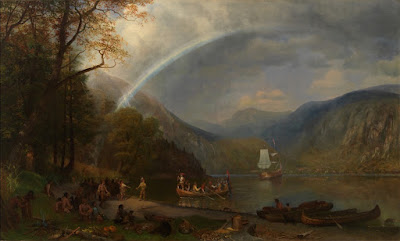A little while back I published "Nature Versus the Common Law: Nature as a Norm in the Water Law of the British World" in the French journal Clio@Themis. The article explores some of the areas of water law in which courts around the common law world departed from the established rules of the common law in order to make the legal rules more appropriate, as they saw it, to the local environment. As the article shows, they did so consciously, explicitly granting nature normative force. It also looks at other courts and judges, ones that resisted this kind of normative claim, arguing that the law in new environments had to conform to the old common-law rules, regardless of what nature seemed to demand.
The question of whether environmental factors required or justified a departure from the inherited rules of the common law arose in courts around British Empire and United States in connection with a variety of legal issues, four of which are examined in the article: a) the question of whether the water, bed, or other resources of a non-tidal river belonged to the riparian landowners or to the state or public ; b) conflicts over property rights following shifts in the course of a river ; c) the issue of the degree of liability of reservoir owners for damage caused to others by escaping waters ; and d) conflicts over whether water might be diverted from a river for irrigation, to the detriment of downstream landowners.
 |
| Discovery of the Hudson River, Albert Bierstadt, 1874 |
I'll be posting some selections from the article later.
No comments:
Post a Comment